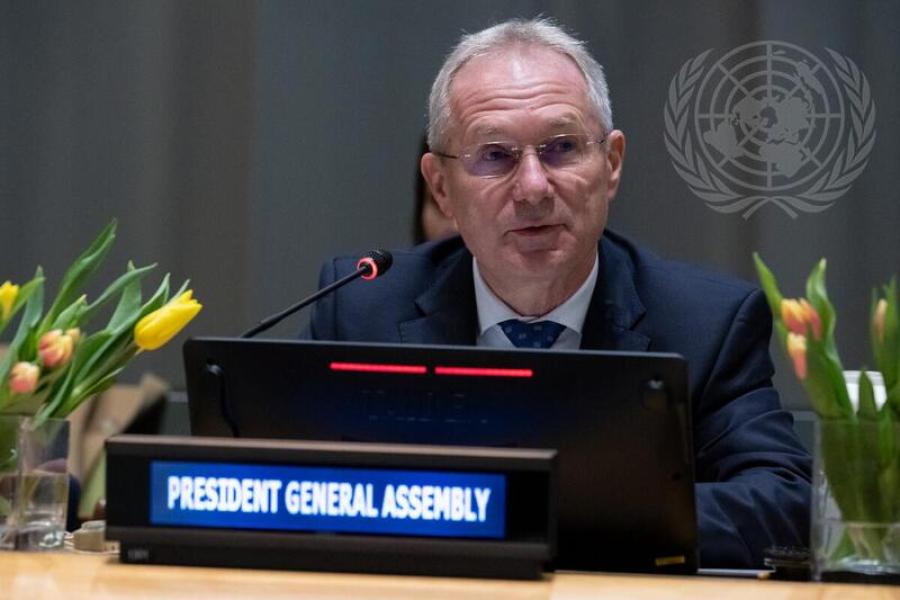Eighth Edition of the Raisina Dialogue
04 March 2023

Message by Csaba Kőrösi, President of the 77th session of the UNGA
It is a pleasure to speak at the Raisina Dialogue, which has emerged as an eminent platform for deliberating the geopolitical issues of our time.
For that, I commend both the Ministry of External Affairs under Dr. Jaishankar’s leadership and the Observer Research Foundation.
In the context of complex and interconnected crises, this forum offers an opportunity to discuss game changing ideas with the potential to tackle emerging global challenges.
During my recent visit to India, I witnessed several transformational ideas related to water – SDG 6.
India is home to 18% of the global population yet has only 4% of the global freshwater resources, making it among the most water-stressed countries globally.
Integrated water management has guided India’s priorities and informed the design of its flagship programmes.
Aligned with the goals of the Water Action Decade, India has focused on universalising access to water and sanitation.
The Namami Gange programme for abatement of pollution and rejuvenation of the Ganges is one of many inspiring stories that are changing lives on the ground.
And for me, it was truly inspiring to see how Bengaluru has been able to solve its problem with treated wastewater by channelling it to serve the irrigation needs of the city’s surroundings.
Looking ahead to this year, there are many opportunities for transformation.
In three weeks, we will hold the UN Water Conference – the first such event in over four decades.
I am sure that it will bring a new “Paris moment”, this time for water action.
We need to raise the level of our ambition to achieve the promise of SDG 6. To do so, let us pursue the gamechangers.
First, we need to analyze, rethink and innovate our national policy frameworks to ensure that we are less exposed to external shocks – whether pandemic related, financial or societal.
We can be less vulnerable and more resilient only if we ensure that climate and water-related policies are integrated.
Second, the SDG framework and effective water management are interdependent.
The UN Water Conference will be the moment to break through the limits of our thinking on water: to move beyond reactive water management and take proactive steps in our struggle to resolve the water crisis.
Third, we are more effective when we cooperate.
A global water information system is a solution that would strengthen both the information base we need to reduce vulnerability, and the solidarity that would make us more resilient.
Together with the “Early Warnings for All” initiative, these systems would save lives and property, enhance planning and boost investment.
To sum up, I call on you to help:
- integrating water and climate policies;
- moving beyond reactive water management;
- and establishing a global water information system to support predictability and resilience.
I hope you will join the conversation in New York later this month to ensure that the world commits to the transformations we need to make “Water for All” a reality.
As Mahatma Gandhi said: “The future depends on what we do in the present.”
And the present is upon us.
I thank you.
[END]


